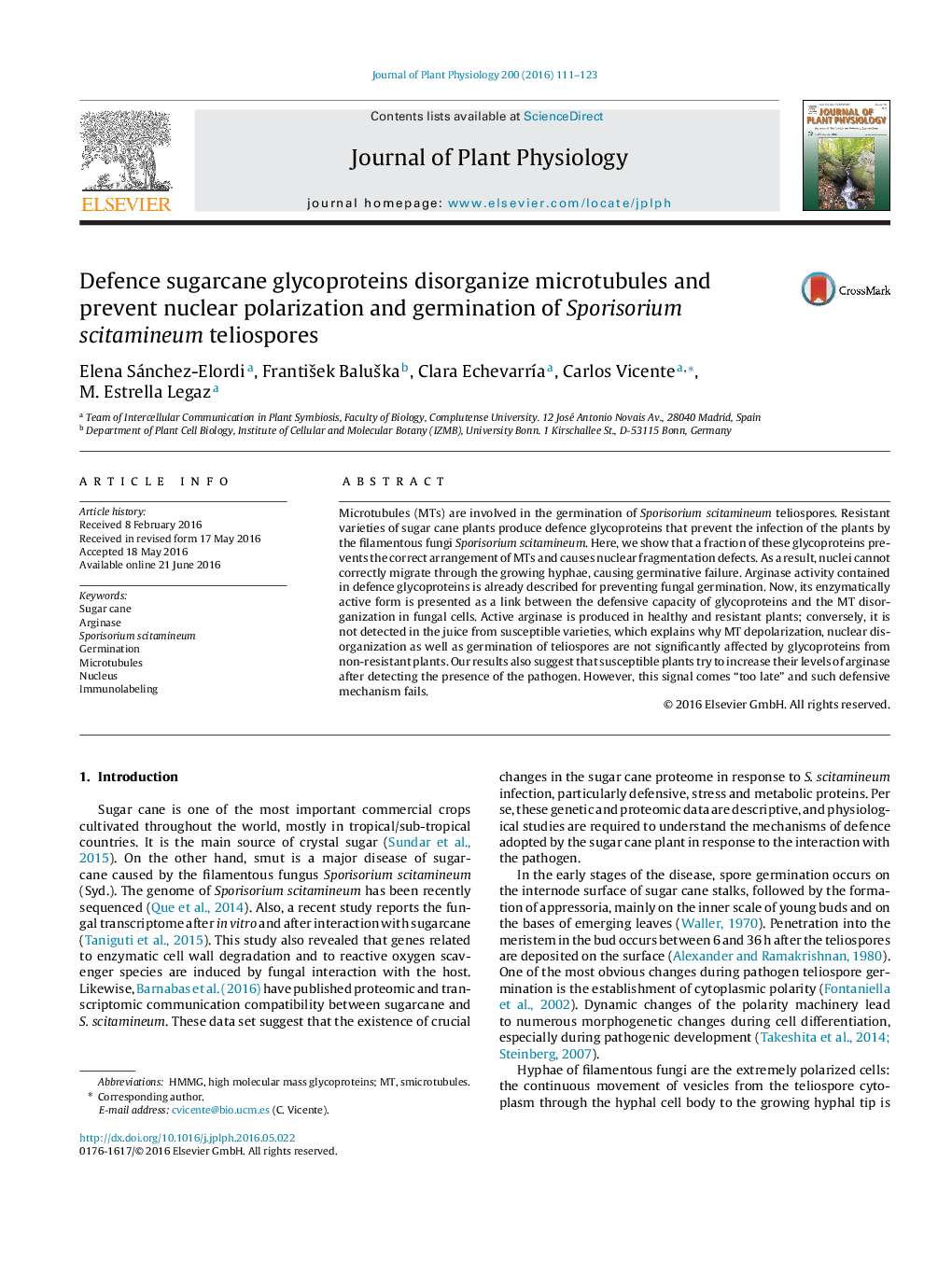| Article ID | Journal | Published Year | Pages | File Type |
|---|---|---|---|---|
| 2055370 | Journal of Plant Physiology | 2016 | 13 Pages |
Microtubules (MTs) are involved in the germination of Sporisorium scitamineum teliospores. Resistant varieties of sugar cane plants produce defence glycoproteins that prevent the infection of the plants by the filamentous fungi Sporisorium scitamineum. Here, we show that a fraction of these glycoproteins prevents the correct arrangement of MTs and causes nuclear fragmentation defects. As a result, nuclei cannot correctly migrate through the growing hyphae, causing germinative failure. Arginase activity contained in defence glycoproteins is already described for preventing fungal germination. Now, its enzymatically active form is presented as a link between the defensive capacity of glycoproteins and the MT disorganization in fungal cells. Active arginase is produced in healthy and resistant plants; conversely, it is not detected in the juice from susceptible varieties, which explains why MT depolarization, nuclear disorganization as well as germination of teliospores are not significantly affected by glycoproteins from non-resistant plants. Our results also suggest that susceptible plants try to increase their levels of arginase after detecting the presence of the pathogen. However, this signal comes “too late” and such defensive mechanism fails.
